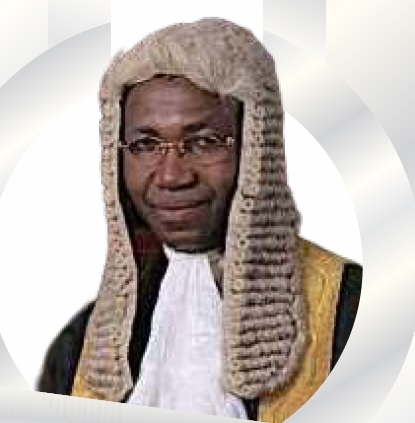A former President of the Nigerian Bar Association (NBA), Chief Wole Olanipekun (SAN), has called on the National Assembly to halt further amendments to the 1999 Constitution, insisting that Nigeria needs an entirely new, homegrown constitution that reflects the will and uniqueness of its people.
Delivering the 13th Convocation Lecture of Afe Babalola University, Ado-Ekiti, titled “Nigeria Yesterday, Today and Tomorrow: Imperative of a Sober and Definitive Recalibration”, Olanipekun described the 1999 Constitution as a “military albatross” that has outlived its relevance and legitimacy. He urged lawmakers to suspend the ongoing constitutional review process, arguing that the nation needs a negotiated and people-oriented document that can usher in a new social order.
“The National Assembly should, for now, stay action on any further amendment to the 1999 Constitution. What Nigeria needs is a complete overhaul — a new, negotiated constitution that embodies the collective aspirations of the people,” Olanipekun stated. The Senior Advocate proposed a transitional phase leading up to May 29, 2031, during which the country would harmonize the numerous reports from past constitutional and restructuring conferences to draft a new consensual national charter. According to him, elections would continue to hold within this period, but with the understanding that by 2031, Nigeria would fully operate under a new constitutional framework.
He also called for the conduct of a national referendum, describing it as a “solemn and unifying act through which citizens collectively determine fundamental national questions.” Citing Section 14(2)(a) of the 1999 Constitution, which vests sovereignty in the people, Olanipekun emphasized that Nigerians have the right to decide how they should be governed. He proposed a reconfiguration of Nigeria’s federal structure, suggesting that states should play a leading role in defining the nation’s governance model rather than the federal government. “It is time for the federating units to take charge of the re-engineering of Nigeria for greater stability — politically, constitutionally, and economically,” he said, warning that creating more states would only weaken the existing federating units while strengthening the central government.
Olanipekun further argued that the National Assembly should not preside over the proposed referendum, noting that “no one can be a judge in his own case.” Beyond constitutional matters, the legal icon decried the rampant cross-carpeting among politicians, warning that the trend could destabilize Nigeria’s democracy. He said political party membership should be based on ideology, principles, and consistency — not personal ambition. He praised President Bola Tinubu for his consistency in remaining within one political party from opposition to power, describing him as a rare example of political fidelity in Nigeria. “Aside from President Tinubu and a few others, most politicians in Nigeria have switched parties with ease since 1999. But Tinubu stood firm even when he was a lone opposition governor,” he said.
Olanipekun also commended the President for reintroducing the old national anthem, describing it as a unifying step toward reconciling Nigeria’s diverse ethnic and linguistic identities.
In his remarks, Aare Afe Babalola (SAN), Chancellor of ABUAD, praised Olanipekun for delivering a well-researched and thought-provoking lecture, aligning it with his long-standing advocacy for a new constitution to drive Nigeria’s holistic development and growth.
